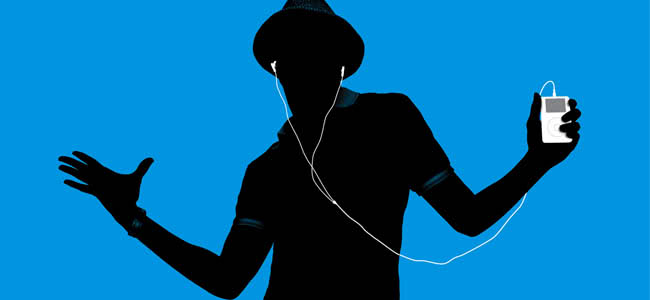Varying views on the current state of the digital music market have been prevalent in recent times.
With the rapid decline in physical album sales, the rise of music streaming service Spotify in Australia, the announcement that digital album sales are set to break last year’s record of 1.3 billion copies sold in the US, and that for the first time ever, sales from downloads were greater than those of CDs and vinyl in the first quarter of the year over in England, there is certainly a lot of conjecture over the current state of the music market worldwide.
Now top industry analyst Mark Mulligan has claimed that a decline in iPod sales is directly to blame for a flat-line in the growth of digital sales, as Digital Music News reports.
Mulligan credits Apple’s iPod for creating the boom in the modern digital music market, and states that “as soon as iPod sales slowed, so did the digital music market”.
He identifies that in 2008 the digital music market had grown by an average annual rate of 85.2%, but this rate dropped to 7.5% following 2008, which directly correlates with a halt in the growth of iPod sales post-2008, signalling a dire decline in the digital market.
Mulligan claims that “in many markets the 2009 slowdown was of falling-off-a-cliff proportions: in the US digital growth slipped from 30% in 2008 to a near flat-lining 1% in 2009”.
“as soon as iPod sales slowed, so did the digital music market”.
Despite digital downloads now becoming the dominate revenue source in the music market, according to Mulligan, it is “not delivering the dynamic growth the digital market needs” and it requires “another iPod momentum to kick the digital market back into life.”
With an increased focus on the iPhone, music is now significantly less central to Apple devices, which has had a direct effect on the digital market, leading to a decline in digital music sales overall, with a broader focus on apps, games, e-books, and multimedia, leading Mulligan to claim that “it is easy to think of Apple’s iTunes Store as yesterday’s game.”
However, Mulligan went on to state that:
“Such an assumption is as dangerous as looking upon the CD as an irrelevance in the present era. The CD and iTunes combined account for approximately 78% of total recorded music revenue in the world’s 10 largest music markets. And yet neither look like they are going to provide the momentum the music industry needs over the next few years.”
While Mulligan is urging that the industry needs another revolutionary ‘iPod moment’, the music world may already be experiencing it in the booming success of digital music streaming services, which may have encroached on some of the decline in physical sales the analyst is bemoaning.
After all, it’s a phenomenon that now contributes $1 billion in combined revenue to the music industry, while the enormous sales figures of Mumford & Sons’ sophomore album, Babel provides an interesting case study into whether streaming services are helping album sales rather than cannibalising them.
With the digital market now in desperate need of a new device with iPod-like hype, perhaps Neil Young’s new “iPod killer” Pono will provide the answer.
The recently announced digital music player is expected to launch next year, focusing on audio fidelity, and will offer a music download store, a line of portable music players, and a revolutionary approach to the way we listen to our favourite tracks that lets music lovers hear the music the way it was intended to be heard.




































